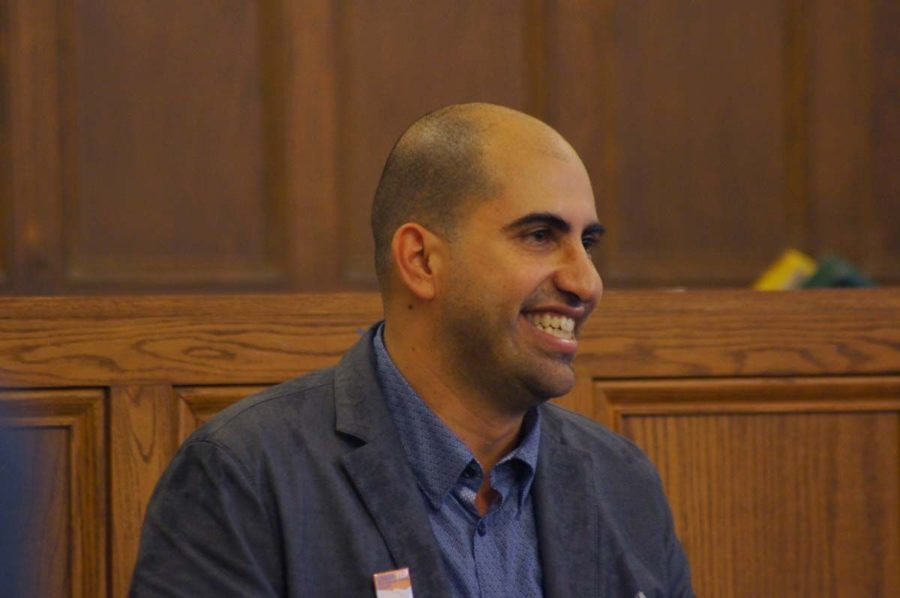AAUP Foundation’s Academic Freedom fund awards grant to Steven Salaita
Steven Salaita’s appointment to the American Indian Studies program was rejected after a series of controversial tweets. He has now been awarded $5,000 by the American Association of University Professors Foundation’s Academic Freedom Fund.
October 15, 2014
Steven Salaita has been awarded a $5,000 grant by the American Association of University Professors Foundation’s Academic Freedom Fund.
The grant was awarded to Salaita last week on the grounds that he was involved in an academic freedom controversy.
“This is $5,000 for him to use in a situation where we believe that he should be suspended with pay while the issue is worked out by the Committee for Academic Freedom and Tenure,” said Hank Reichman, AAUP first vice president and chair for the Committee on Academic Freedom and Tenure.
The grant comes after Salaita’s appointment to the American Indian Studies program was rejected after he sent out tweets regarding the Israeli-Palestinian conflict.
These grants are awarded to individuals under two separate guidelines. The first situation involves an individual that is a victim of violations of academic freedoms that requires legal fees, Reichman said.
Get The Daily Illini in your inbox!
The other is to people involved in academic controversy, such as Salaita, to provide personal support regardless of the what the outcome of the controversy might be.
“Since we believe that he should be suspended with pay, we believe it is only fair that we provide him with a donation,” Reichman said. “It is a modest donation compared to the living expenses of a family and compared to the salary he’d be getting if he was employed now.”
The AAUP department of academic freedom and tenure and governance applied on Salaita’s behalf, according to Reichman. The foundation board voted on the grant application and agreed to award the money.
Salaita was awarded the grant under the second set of guidelines, meaning that the foundation will not look at the way he is spending the money.
The first guidelines require the money to be used for legal fees, Reichman said.
The AAUP Foundation’s Academic Freedom Fund is funded by donations and is a separate charitable organization from the professional AAUP organization. The number of grants given out every year varies, Reichman said.
The foundation does not only fund individuals, as it also recently gave a grant to finance the online Journal of Academic Freedom.
The AAUP has been involved in the Salaita case previously, sending the University letters expressing their concern about the situation and are waiting to see the University’s Academic Senate Committee on Academic Freedom and Tenure does before taking further action.
There is the possibility the AAUP will launch its own investigation and possibly place the University administration on its censure list for violations of academic freedoms, Reichman said.







